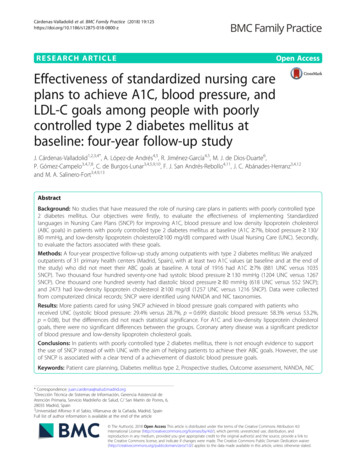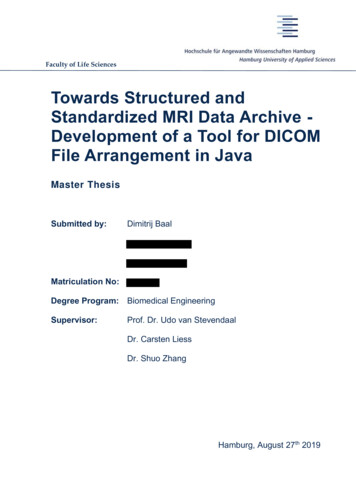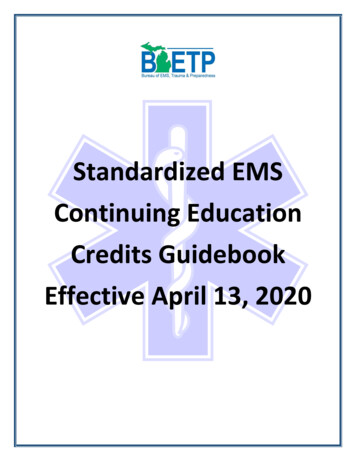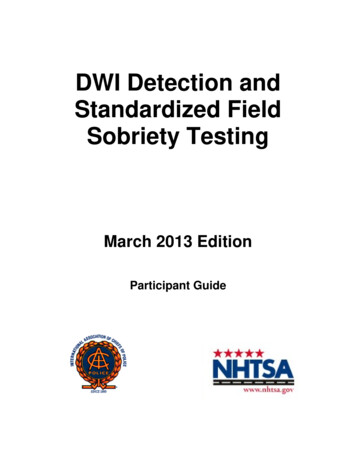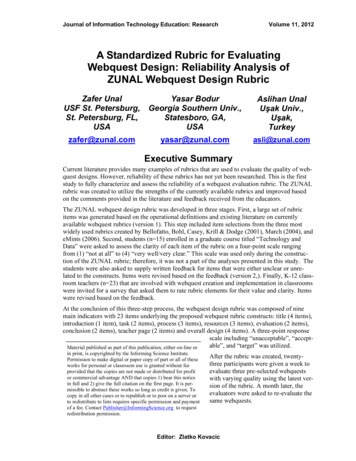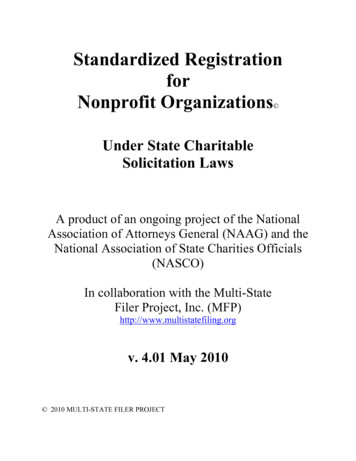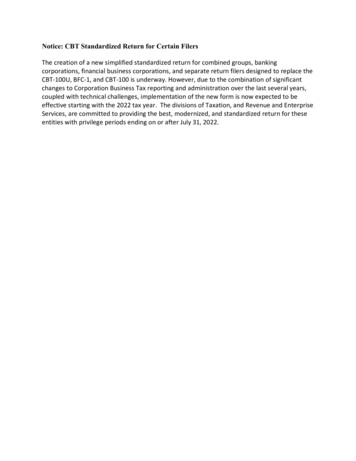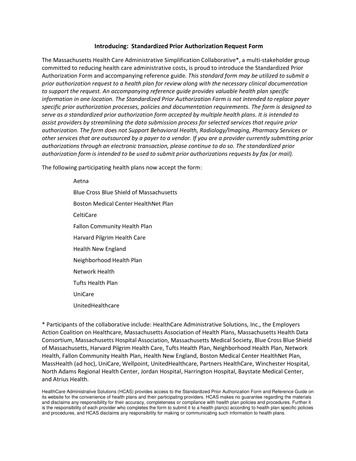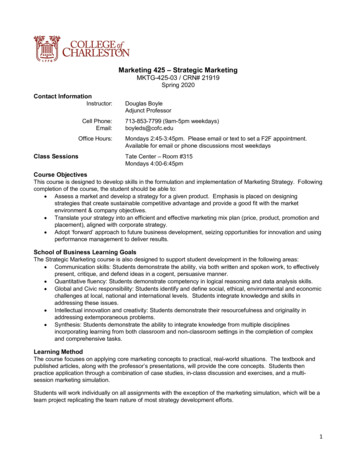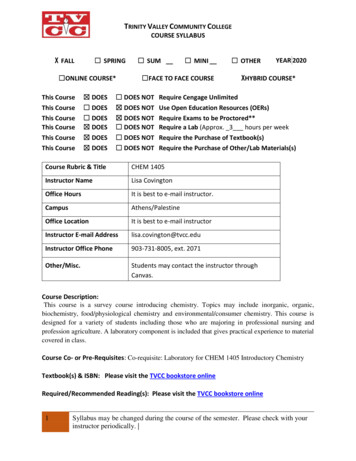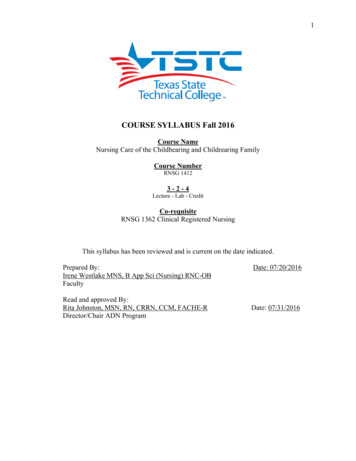
Transcription
Cover SheetEMA4623C Process tewideCourseNumberingSystemOffice of legeNotifiedCourse Modify Ugrad/ProPendingNunez,Julissa jnunez@ufl.edu10/28/2014 3:39:53 PM12/1/2014 11:09:28 AMEngineering aspects of mineral processing, including unit operations and flow sheets.Science and technology of metal extraction with applications to specific ferrous andnon-ferrous metals.StatusGroupApproved ENG MaterialsScience andEngineering011909000Approved ENG - Collegeof EngineeringComment PV - UniversityCurriculumCommittee(UCC)PendingPV - UniversityCurriculumCommittee(UCC)UserXue, d10/28/201411/24/2014Added to the Decemberagenda12/1/201412/1/2014
UCC2: Change Course Transmittal FormCurrent SCNS Course Identification1.Course Prefix5.Course TitleEM2. Level4AProcess Metallurgy3.Number6234.Lab CodeCRequested Action6.Effective Term8.Action:Fall7.Effective Year2015Terminate Course (Skip to item 24 on this form.)Other (Complete all items below.)If you select “yes” to change any item below, complete the corresponding “current” and “proposed” fields.ItemChange?CurrentProposedCourse PrefixYes XXXXXX10. Course LevelYes SelectSelect11. Course NumberYes XXXXXX12. Lab CodeYes C‐13. Course TitleYes Click here to enter text.Click here to enter text.14. Transcript TitleYes Click here to enter transcript title.Click here to enter transcript title.15. Credit Hours*Yes 4316. Variable Credit*Yes Min # and max # creditsper semesterMin # and max # creditsper semester17. S/U OnlyYes SelectSelect18. Contact Type*Yes Select contact typeSelect contact type19. Rotating TopicYes SelectSelect20. Repeatable Credit*Yes SelectSelect21. Course Description*Yes Click here to enter text.Click here to enter text.22. PrerequisitesYes Click here to enter text.Click here to enter text.23. Co‐requisitesYes Click here to enter text.Click here to enter text.9.(21 characters max)(50 words or fewer.)* If the request is for a change in credits, contact type or course description, a syllabus must be attached and thesyllabus checklist on the next page of this form must be completed.24. Rationale and Placement in CurriculumThe course will remain in the same place in the curriculum. The lecture and the laboratory are being separated toincrease flexibility in the schedule and allow students to take the course as an elective without having to take thelab if they do not need to or do not wish to take it.UCC2: Change Course Transmittal FormRevised 12/2/2014UF, Academic Affairs
Fall 2014 Syllabus: EMA 4623Process Metallurgy1. Course Description: (3 credit hours) – Engineering aspects of mineral processing, including unitoperations and flow sheets. Science and technology of metal extraction with applications to specificferrous and non-ferrous metals.2. Co-requisites: EMA 4120 – Physical Metallurgy 13. Course Objectives:To introduce the student to processing of structural metallurgical materials and materials selectionfor structural applications4. Contribution of course to meeting the professional component:This is a 3 credits course. It provides 2 credits towards engineering sciences and 1 credits towardsdesign.5. Relationship of course to program outcomes: This course addresses the following MSEProgram outcomes (Note: Numbers refer to the list of MSE Program Outcomes)4) Ability to apply and integrate knowledge of structure, properties, processing, and performance tosolve materials selection and design problems within realistic constraints. The problems involvedesigning/selecting a process to produce a part or a product. The effort includes several steps (butnot limited to) defining the product application, materials selection, comparison between differentprocessing options based on the product specifications, material selected, the process parameters,and environmental impact, as well as cost analysis. The course also includes field trips to materialsprocessing facilities in the area. (High Coverage)6) Ability to identify, formulate and solve engineering problems. The course lectures includeexamples of various processing technologies and their applications in different practical situations.The project involves identifying the product specifications needed to meet its applicationrequirements. The students select the processing methodology. They ask themselves severalquestions such as: What is the most appropriate casting process? What is the most appropriatealloy to use in the casting, considering both the performance and the manufacturability (castabilityand machinability)? Thus, they learn how to formulate the problem and how to solve it. (Highcoverage)9) Understanding of the economic impact of engineering solutions.(low coverage) As part of thedesign project, students are asked to consider economic factors, such as production costs andmarketing.6. Instructor: Dr. G.E. Fuchs Office location: Rhines Hall 116Telephone: 352-846-3317E-mail address: gfuch@mse.ufl.eduClass Web site: The course website can be found on the Canvas system http://lss.at.ufl.edu.There you can find the course syllabus, lecture notes, grades, and announcements. Checkit frequently.7. Teaching Assistant:8. Office hours: TBD9. Meeting Times: TBDTBD
10. Meeting Location: TBD11. Material and Supply Fees: Not applicable12. Textbooks and Software Required:Title:Author:Publisher:Manufacturing Processes for Engineering Materials – 5th EditionS. Kalpakjian and S.R. SchmidAddison-Welsey Publishing, Co., Reading, PA13. Course Outline:WeekTopic1Design considerations in manufacturing2Mechanical properties for design3Test techniques for design4Solidification and casting5-6Wrought processing7-8Sheet metal forming9-10Powder metallurgy processing11Joining12Coating13Comparison to other structural materials14Economics of design15-16Repair and rejuvenation14. Attendance and Expectations: Lecture attendance is highly recommended. While attendance isnot mandatory, experience has shown that those who attend lectures earn higher grades in thecourse. Arrival on time is expected. Please turn off all cell phones upon entering class. Reading ofnewspapers, work on assignments for this or other classes, or other activities that are not part ofthe class are not allowed during lecture. Students who do not comply with these requirements orwho behave disorderly or disrespectfully may be asked to leave the classroom.15. Make-up exams: Make up exams will be provided only with the approval of the instructor inaccordance with university gulations/info/attendance.aspx)In general, acceptablereasons for excused absence from an exam include illness, serious family emergencies, specialcurricular requirements, military obligation, court-imposed legal obligations, and religious holidays.In all cases, you will be required to provide written documentation, and obtain instructor approval.You will not be excused from any exam without following the policy above, with no exceptions.Students not in attendance for the scheduled exam will receive a score of zero. Make-up exams forexcused absences as well as exam conflicts must occur within 1 week of the missed exam, andmay occur before the missed exam.16. Homework Exercises:Homework exercises will be assigned regularly. These homeworkquestions are essential to your study and some exam and quiz questions will be adapted fromthem. No late homework assignments will be accepted. Please see the TA during his officehours to discuss homework problems.2
17. Quizzes: You will be given short quizzes throughout the semester; and the lowest quiz grade willbe dropped.Make up quizzes will be provided only with the approval of the instructor inaccordance with university policies.18. Grading:1) Homework given approximately bi-weekly, due within 1 week of assignment. Late homeworkaccepted until solutions handed-out, but penalized 10% per day after due date. All work must beshown for full/partial credit.2) Exams: 3 mid-terms tentatively schedule for: TBAOptional final – Tues., December 16th, 5:30-7:30pmAll work must be shown for full/partial credit.Questions require thought/common-sense.3 Midterm ExamsBi-weekly HomeworkOptional Final ExamWithout Optional Final25% each25%N/AWith Optional Final20% each20%20%Total100%100%19. Grading Scale:PercentageLetter GradeGrade Points 92 88 84 80 76 72 68 65 62 59 56 56AAB BBC CCD DDE4.00 3.67 3.33 3.00 2.67 2.33 2.00 1.67 1.33 1.00 0.67 0.0020. Honesty Policy: All students admitted to the University of Florida have signed a statement ofacademic honesty committing them to be honest in all academic work and understanding thatfailure to comply with this commitment will result in disciplinary action. This statement is a reminderto uphold your obligation as a UF student and to be honest in all work submitted and exams takenin this course and all others. Note that failure to comply with this commitment will result indisciplinary action compliant with the UF Student Honor Code Procedures.See hp21. Accommodation for Students with Disabilities: Students Requesting classroom accommodationmust first register with the Dean of Students Office. That office will provide the student withdocumentation that he/she must provide to the course instructor when requesting accommodation.22. UF Counseling Services: Resources are available on-campus for students having personalproblems or lacking clear career and academic goals. The resources include: UF Counseling & Wellness Center, 3190 Radio Rd, 392-1575, psychological and psychiatricservices. Career Resource Center, Reitz Union, 392-1601, career and job search services.23. Software Use: All faculty, staff and student of the University are required and expected to obey thelaws and legal agreements governing software use. Failure to do so can lead to monetarydamages and/or criminal penalties for the individual violator. Because such violations are alsoagainst University policies and rules, disciplinary action will be taken as appropriate. We, themembers of the University of Florida community, pledge to uphold ourselves and our peers to thehighest standards of honesty and integrity.3
24. Students are expected to provide feedback on the quality of instruction in this course based on10 criteria. These evaluations are conducted online at https://evaluations.ufl.edu. Evaluations aretypically open during the last two or three weeks of the semester, but students will be given specifictimes when they are open. Summary results of these assessments are available to students athttps://evaluations.ufl.edu/results.4
Syllabus Requirements ChecklistThe University’s complete Syllabus Policy can be found ies/syllabi policy.pdfThe syllabus of the proposed course must include the following:Course titleInstructor contact information (if applicable, TA information may be listed as TBA)Office hours during which students may meet with the instructor and TA (if applicable)Course objectives and/or goalsA weekly course schedule of topics and assignments.Methods by which students will be evaluated and their grades determinedInformation on current UF grading policies for assigning grade points. This may be achieved by includinga link to the appropriate undergraduate catalog web ions/info/grades.aspx.List of all required and recommended textbooksMaterials and Supplies Fees, if anyA statement related to class attendance, make‐up exams and other work such as: “Requirements forclass attendance and make‐up exams, assignments, and other work in this course are consistent withuniversity policies that can be found in the online catalog ns/info/attendance.aspx.”A statement related to accommodations for students with disabilities such as: "Students requestingclassroom accommodation must first register with the Dean of Students Office. The Dean of StudentsOffice will provide documentation to the student who must then provide this documentation to theInstructor when requesting accommodation."A statement informing students of the online course evaluation process such as: “Students are expectedto provide feedback on the quality of instruction in this course based on 10 criteria. These evaluations areconducted online at https://evaluations.ufl.edu. Evaluations are typically open during the last two orthree weeks of the semester, but students will be given specific times when they are open. Summaryresults of these assessments are available to students at https://evaluations.ufl.edu/results.”It is recommended that the syllabus contain the following:Critical dates for exams or other workClass demeanor expected by the professor (e.g. tardiness, cell phone usage)The university’s honesty policy regarding cheating, plagiarism, etc.Suggested wording: UF students are bound by The Honor Pledge which states, “We, the members of theUniversity of Florida community, pledge to hold ourselves and our peers to the highest standards ofhonor and integrity by abiding by the Honor Code. On all work submitted for credit by students at theUniversity of Florida, the following pledge is either required or implied: “On my honor, I have neithergiven nor received unauthorized aid in doing this assignment.” The Honor �conduct‐honor‐code/) specifies a number of behaviorsthat are in violation of this code and the possible sanctions. Furthermore, you are obligated to report anycondition that facilitates academic misconduct to appropriate personnel. If you have any questions orconcerns, please consult with the instructor or TAs in this class.Contact information for the Counseling and Wellness Center: http://www.counseling.ufl.edu/cwc/, 392‐1575; and the University Police Department: 392‐1111 or 9‐1‐1 for emergenciesUCC2: Change Course Transmittal FormRevised 12/2/2014UF, Academic Affairs
Title: Manufacturing Processes for Engineering Materials – 5th Edition Author: S. Kalpakjian and S.R. Schmid Publisher: Addison-Welsey Publishing, Co., Reading, PA 13. Course Outline: Week Topic 1 Design considerations in manufacturing 2 Mechanical properties for design
